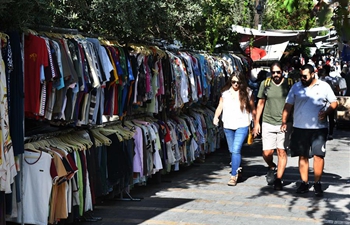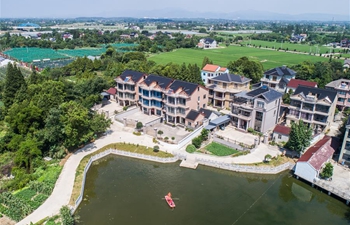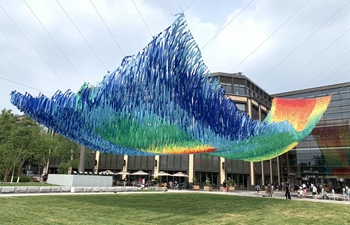MANILA, Aug. 6 (Xinhua) -- Dengue cases and deaths continue to surge in the Philippines, prompting the Department of Health to declare on Tuesday the country's dengue outbreak a national epidemic.
Philippine Health Secretary Francisco Duque said the move is to allow local governments to draw on a special quick response fund needed in the fight against the mosquito-borne viral disease.
From January to July 20 this year, Duque said the health department had recorded some 146,000 dengue cases across the country, or 98 percent more than the same period in 2018. The outbreak has caused 622 deaths, he added.
Duque said it is important to declare a national epidemic to identify where the localized response is needed and enable local government units to use their quick response to address the situation.
From July 14-20 alone, Duque said the Department of Health had recorded 10,502 dengue cases in 14 regions nationwide. This was 71 percent higher than the figures gathered in the same period in 2018, he added.
Last month, the government declared a national dengue alert and urged regional health offices to step up dengue surveillance, case management and outbreak response in primary health facilities and hospitals, as well as through community and school-based health education campaigns, clean-up drives, surveillance activities, case investigations, vector control, and logistics support for dengue control like insecticides, rapid diagnostics tests, and medicine.
The government is undertaking a nationwide public information campaign to follow what it calls as the "4S method" which stands for "search and destroy" mosquito-breeding sites, employ "self-protection measures" such as wearing pants and long-sleeved shirts, and daily use of mosquito repellent, "seek early consultation," and "support fogging or spraying" in areas where an increase in cases is registered for two consecutive weeks to prevent an impending outbreak.
Dengue cases in the Philippines have been observed to peak every three to four years. The last peak occurred in 2016. Given the pattern, the health department expects an increase in cases this year.
Dengue is a viral disease with no known vaccine or specific antibiotics. Effective surveillance helps in reducing cases and deaths if areas with clustering of cases are identified early.
Signs and symptoms of the disease are severe headache, pain behind the eyes, severe joint and muscle pain, fatigue, nausea, vomiting, and skin rashes.













